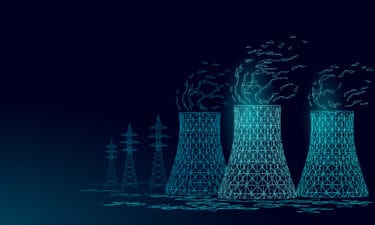Denison Mines (TSX:DML) is a uranium exploration and development company with interests focused on the Athabasca Basin region of Northern Saskatchewan, Canada. The company’s flagship project is the 90% owned Wheeler River uranium project, the largest undeveloped uranium project in the infrastructure-rich eastern portion of the Athabasca Basin region of Northern Saskatchewan.
The company was formerly known as International Uranium Corporation and underwent a name change to Denison Mines in December 2006. It is headquartered in Toronto, Canada.
Unique and valuable assets
Denison’s interests in Saskatchewan also include a 22.5% ownership interest in the McClean Lake joint venture. In addition, Denison has an extensive portfolio of exploration projects in the Athabasca Basin region. The company is engaged in mine decommissioning and environmental services through Denison’s environmental services division.
The company’s strategy is focused on leveraging Denison’s uniquely diversified asset base to position it to take advantage of the strong long-term fundamentals of the uranium market. Denison has built a portfolio of strategic uranium deposits, properties, and investments highlighted by a 90% interest in Wheeler River.
While active in exploring new uranium discoveries in the region, Denison’s present focus is on advancing Wheeler River to a development decision, with the potential to become the next large-scale uranium producer in Canada.
Positive uranium outlook
For the first time in several years, the outlook for global uranium demand is positive and reflects industry consensus that the demand picture has improved significantly in recent years. One of the most significant acknowledgments of this was made by the European Union, which officially acknowledged the importance of nuclear energy in meeting the region’s comprehensive climate action goals.
Positive sentiment toward nuclear also appears to be growing. Several businesses have emphasized the importance of nuclear power, highlighting that the world needs to run nuclear power plants longer if climate protection really matters.
Global shortfall
With a significant shortfall having developed between annual nuclear utility requirements and primary production, inventories and other secondary sources of supply are being drawn down to meet the utility needs of the world. This process of inventory drawdowns suggests that we are nearing an inflection point when end-users of uranium begin to question where long-term uranium supplies will come from and how secure that supply will be.
There is already a growing sense that market participants are beginning to look beyond near-term market conditions in an attempt to understand what the supply environment will look like in the mid-2020s and beyond. With a renewed focus on nuclear energy as a critical element in battling climate change, it is expected that global utilities will be looking to source future supply from operations that are not only low-cost, reliable, and situated in stable jurisdictions, but also those which are flexible and environmentally responsible. Denison is well-positioned to meet these needs.
Value creation
With a shortage of low-cost uranium development projects in the global project pipeline, Denison offers shareholders exposure to value creation through the potential future development of Wheeler River as well as an anticipated increase in future uranium prices.








